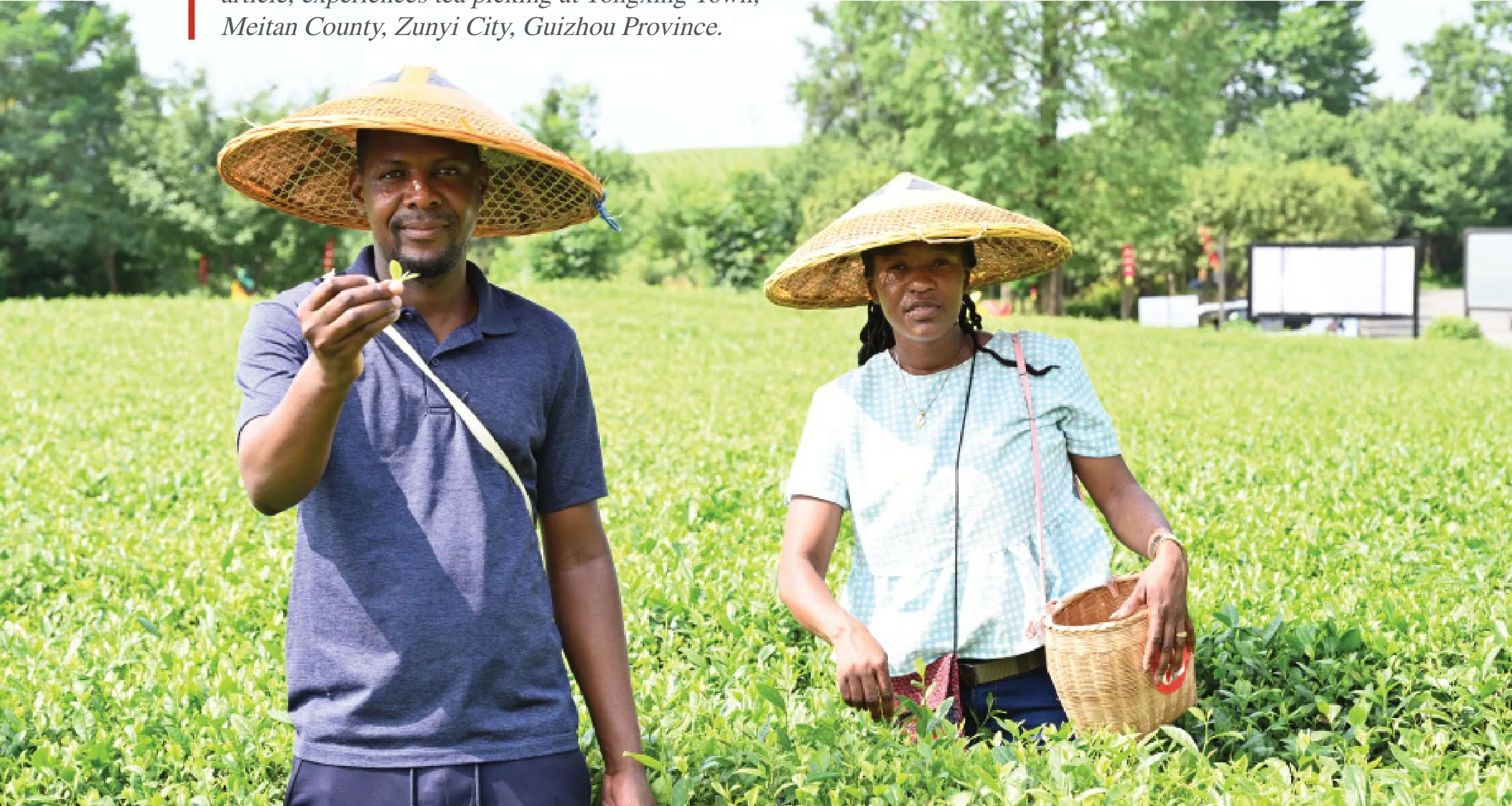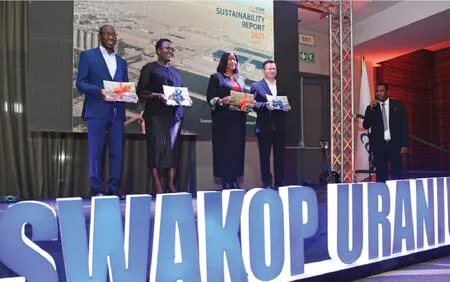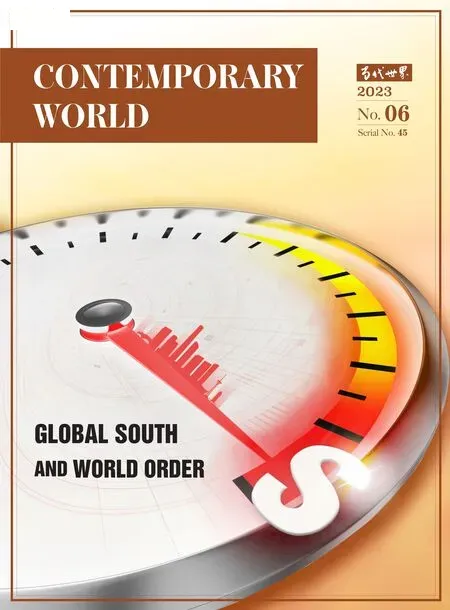Interpretation of Namibia Politics and the Need to Intensify Agriculture for Economic Transition in Africa, a Lesson to Learn from China
Rehabeam Iiyambo
It has been a beautiful last two weeks in People’s Republic of China, I arrived in Beijing on the 2 July 2023 to attend a prestigious workshop for Shaping the Share Future: Young African Political Leaders which ended on the 14 July 2023 in Shanghai City.I am back in Windhoek, Namibia (Land of the Brave)with chilly weather and I am in a good spirit of patriotism.Let us dwell in it!! Namibia, a country located in southwestern Africa, has a rich history shaped by political struggles and economic challenges.
Since gaining independence in 1990, Namibia has made significant strides in terms of political stability and socio-economic development.However, there is still a pressing need to intensify Agriculture as well as Technology and Financial Technology (Fintech) sectors to drive the country’s economic metamorphosis for the purpose of building a community with a shared future for humanity.
Namibia’s political landscape is characterized by a robust democracy and a commitment to good governance.The country has established a multi-party system, ensuring, a political pluralism and fostering a healthy competition of ideas.Additionally,Namibia has a strong legal framework that protects human rights,freedom of speech, and a free press.This political stability has been crucial in attracting foreign direct investment, fostering economic growth,and building a reliable environment for businesses to thrive.
While Namibia has made commendable progress in political stability, it faces persistent economic challenges.The country relies heavily on the mining sector, particularly diamonds and uranium, which contribute significantly to its GDP.However, this over-reliance on natural resources leaves Namibia vulnerable to fluctuations in global commodity prices, which can severely impact its economy.To ensure sustainable economic growth, Namibia must diversify its economy and reduce its dependency on extractive industries.
Technology holds immense potential for transforming Namibia’s economy.Embracing digitalization and investing in technological infrastructure can significantly enhance efficiency, productivity, and competitiveness across various sectors.By leveraging technology, Namibia can improve access to education,healthcare, and government services,bridging the digital divide and fostering inclusive growth.Furthermore,technology can stimulate innovation and entrepreneurship, creating jobs and stimulating economic activity.
Agriculture is a sector that has the potential to drive Namibia’s economic metamorphosis.Despite being arid, Namibia has vast untapped agricultural potential.The country can harness modern farming techniques,such as precision agriculture, drip irrigation, and hydroponics, to overcome its water scarcity challenges and increase agricultural productivity.Investing in sustainable agriculture practices can not only boost food security but also create employment opportunities, reduce poverty, and generate export revenues.
Additionally, the Fintech sector has the potential to revolutionize Namibia’s financial landscape.Fintech solutions, such as mobile banking,digital payments, and blockchain technology, can enhance financial inclusion, improve access to credit, and facilitate secure and efficient transactions.By embracing Fintech, Namibia can reduce the reliance on traditional banking systems, expand financial services to underserved populations,and drive economic growth.
To intensify the agriculture, as well as the Technology and Fintech sectors, Namibia needs to prioritize investment in education and skills development.By equipping its workforce with the necessary technical and digital skills, Namibia can foster a culture of innovation and entrepreneurship.Additionally, the government should create an enabling environment for private sector investment, offering incentives and support to businesses operating in these sectors.Collaboration between the government, private sector, and international partners China to be specific is crucial to developing a comprehensive strategy that addresses the specific challenges and opportunities faced by Namibia.
Agriculture is a field that demands collaboration and co-ordination among different actors to achieve optimal results.China’s success in agriculture is largely attributed to the co-ordination and collaboration of its agricultural stakeholders,namely government, researchers, and community, in what I referred to as the golden triangle.The golden triangle is a closely knit group that shares information and works together to address issues related to production and productivity.
The success of this structure is a testament to the power of co-ordination and collaboration in achieving success in agriculture as evidently as case in China.The specific examples of the golden triangle concept can be found in Yanbo Village in Yuni town under the leadership of Ms.Yi Liufen as well as the local young entrepreneurs farming with peach in Pinggu District.
The golden triangle in China’s agriculture sector is not just a mere collaboration but a well-thought-out co-ordination of government, researchers, and community (farmers).Each component has a specific role,and they work together to address the challenges in their respective areas.Communities (farmers) are responsible for implementing the research findings, while researchers develop innovative solutions to the challenges facing government.Community serves as intermediaries between government and researchers, disseminating information to government and collecting feedback to improve research.This close relationship ensures that any issue is quickly addressed, and solutions are developed in a timely manner.
This close relationship between the three components of the golden triangle is not just a casual relationship, but a relationship built on trust,freedom of expression, and open lines of communication.Each component has a say, and their opinions are valued.This open communication enables government to give feedback to researchers, who can then tailor their research to meet the needs of farmers.Researchers can also provide government with up-to-date information on the latest research findings,enabling government to make informed decisions.
The reason China’s experience is of great significance to African countries is that majority have a history like that of China.They follow similar quests and face similar challenges.Moreover, China and a number of African developing countries have in common is the experience of hardships and breaking the chains of imperialism and colonialism through national liberation movements.Although China is thriving economi-cally, most of these African developing countries are economically and culturally behind and are now struggling to achieve modernization.

On July 10, 2023, Iiyambo (far left), author of this article, experiences tea picking at Yongxing Town,Meitan County, Zunyi City, Guizhou Province.
China and African developing countries are therefore sharing a common historical destiny.In addition, China is a socialist country and adheres to the development path of socialism with Chinese characteristics.China established a new path that fits with its national conditions and national system, implemented reforms, and accumulated a good deal of successful experience.
Therefore, China offers new choices to African developing countries that want to accelerate development and maintain their independence,and China also contributes wisdom and solutions to human problems.Therefore, developing countries can learn from China’s successful reform experience.SWAPO Party is the governing party of the Government of Namibia, lately, it’s Central Committee has been discussing an appropriate approach to implement socialism with Namibian characteristics.
Overall, the main lesson from China’s past 40 years of reform and opening-up is that proper incentives and behaviour of the government,local and central, are important for economic growth and that lies within the coordination approach of bottomup planning amongst other factors.
The bottom-up planning coupled with coordination, dedication and discipline has been key to China’s success in building an inclusive prosperous nation they are today.The advantage of bottom-up planning is that due to the decentralized approach, planning starts directly from the community members whereby community members are directly involved in the planning process.
The success of China’s agriculture sector is a testament to the power of coordination and collaboration among various stakeholders.African countries are encouraged to benchmark on China’s model “golden triangle”to improve their agriculture sector.In countries where appears to be a disconnection between government, researchers, and community, co-ordination and collaboration could be encouraged to improve the implementation and address challenges in the sector.
The Chinese government implemented poverty alleviation actions that can be a model for successful reform worldwide and provides useful experience for developing countries,especially in Africa.It is also notable that the poverty alleviation policies formulated in China were adapted according to the country’s national conditions and had been completed by 2020, whereby, the entire population has become moderately prosperous.
In conclusion, it is my conviction that agriculture is a field that requires co-ordination and collaboration among different actors to achieve optimal results.China’s success in agriculture is attributed to the philosophy which is a well-thoughtout co-ordination of government,researchers, and its community.This close relationship between the three components of the golden triangle is built on trust, freedom of expression,and open lines of communication.The success of this model could be replicated in African countries to improve their agriculture sector.
Most Africa’s political stability has laid a strong foundation for economic development, but there is a pressing need to intensify technology, agriculture, and Fintech sectors to drive the country’s economic metamorphosis.Embracing technology, investing in sustainable agriculture practices,and leveraging Fintech solutions can diversify Namibia’s economy, create employment opportunities, and enhance financial inclusion.Through strategic investments and collaboration, Africa can unlock its full potential and achieve sustainable and inclusive growth.

A company event of the Swakop Uranium, a subsidiary of China General Nuclear Power Group, demonstrates Chinese companies assisting Namibia to build a green and sustainable mining economy.
- Contemporary World的其它文章
- Global South: An Important Driving Force for the Evolution of the International Order
- New Developments in the Middle East amid Great Changes:Features, Challenges and Prospects
- US Strategic Competition with China and the Evolution of Order in the Asia-Pacific Region
- US Democratic Party Campaign Strategy Adjustment under the Background of Political Polarization
- The Journey to Youth Creation on Shared Prosperity:Sharpening Mutual Learning for Shared Future for Humanity
- The Strength of the Global South in Addressing Climate Change

